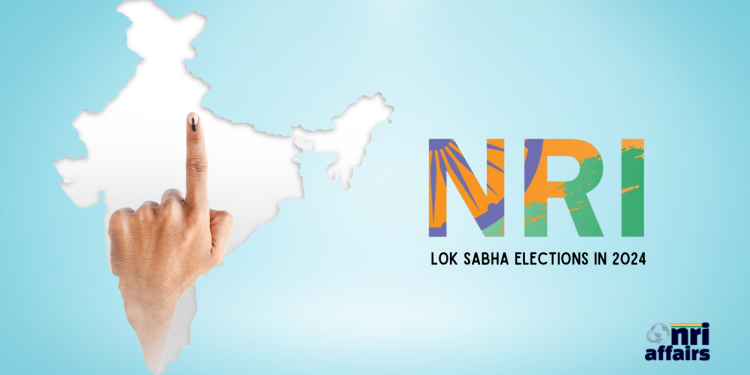In the global landscape, the Indian diaspora stands as a significant demographic, with approximately 10 million Non-Resident Indians (NRIs) spread worldwide. Efforts to address this issue have been ongoing, with various proposals and initiatives aimed at enabling NRIs to exercise their voting rights and engage more actively in the electoral process. While this number may have shifted since the 2014 report by the expert committee appointed by the Election Commission of India (ECI), it provides a foundational understanding of the scale of NRIs globally.
Within this expansive community, there exists a vital concern regarding their participation in Indian elections, particularly in the Lok Sabha and state assembly elections. Granting NRIs the voting right in Indian elections, especially in Lok Sabha elections, has been a topic of considerable debate and discussion. It not only involves logistical challenges but also raises questions about representation and the democratic process.
Recognizing NRI Voting Eligibility
NRIs, categorized into two groups – those who have relinquished their Indian citizenship and those still holding Indian passports, possess a right to vote. However, it’s crucial to note that not all Indian passport holders among NRIs are eligible voters due to factors such as age restrictions, typically set at 18 years and above. Accounting for such criteria, let’s consider a ballpark figure of around five million eligible NRI voters.
Current Challenges in NRI Voting
Presently, the process for NRIs to exercise their voting rights is encumbered with logistical hurdles. Eligible NRIs must navigate through the cumbersome process of filling Form 6A, either online or offline, providing requisite documentation such as Indian passports bearing their Indian home address, along with valid visa pages and photographs. Despite these efforts, the requirement to physically appear at the polling booth in India on the election day dampens the enthusiasm of many NRIs. Consequently, the number of registered overseas voters remains relatively low, with only a fraction displaying interest in the 2014 elections, predominantly from Kerala.
Exploring Viable Solutions
Recognizing the need for reform, various avenues have been proposed to facilitate NRI voting, notably through the utilization of technology and alternative voting methods. The Election Commission of India has indicated the forthcoming issuance of e-ballot papers as a potential solution, aiming to streamline the voting process for NRIs. However, concerns regarding the practicality and security of such measures persist.
Proxy Voting: A Viable Option
One proposed solution, akin to proxy voting in corporate settings, entails allowing NRIs to appoint proxies to cast their votes on their behalf. Drawing parallels from existing corporate laws mandating proxy forms for company meetings, this approach could offer NRIs a feasible means of participating in elections without the need for physical presence. Importantly, proxies could ensure representation across various constituencies, transcending geographical barriers.
E-Ballot: Balancing Convenience and Security
Alternatively, the issuance of e-ballots presents a technologically-driven solution, allowing registered NRI voters to receive their ballots electronically, cast their votes, and return them via post. While this method offers convenience, concerns regarding cybersecurity and the integrity of the electoral process necessitate meticulous safeguards to prevent potential tampering or interception of e-ballots.
Charting the Path Forward
As the 2024 Lok Sabha elections loom on the horizon, the imperative for reforming NRI voting mechanisms becomes increasingly pronounced. Embracing innovative solutions such as proxy voting and e-ballots represents a pivotal step towards ensuring the active participation of NRIs in India’s democratic processes. By addressing logistical constraints and enhancing accessibility, India can reaffirm its commitment to inclusivity and democratic principles.
Conclusion
In essence, the disenfranchisement of NRIs due to logistical constraints undermines the democratic ethos of India. As a nation that prides itself on its democratic heritage, it is incumbent upon policymakers and electoral authorities to enact reforms that empower NRIs to exercise their fundamental right to vote. By embracing technology-driven solutions and fostering greater inclusivity, India can forge a path towards a more participatory and representative democracy.











